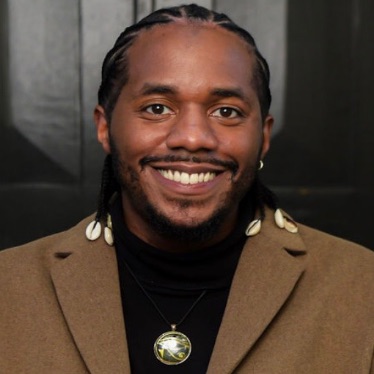What’s the difference between gender identity and sexual orientation?
Though they’re often discussed together, gender identity and sexual orientation are two very different parts of who we are.
- Gender identity is your internal understanding of your gender. It’s how you perceive yourself—whether as male, female, both, neither, or something else entirely. It exists regardless of your body, chromosomes, or the sex assigned to you at birth. Some people identify as transgender, nonbinary, genderfluid, or agender—and all of these are valid expressions of identity.
- Sexual orientation refers to who you’re emotionally, romantically, or physically attracted to. Labels like gay, lesbian, bisexual, asexual, or pansexual describe orientation—not gender. A transgender person, for example, may be straight, gay, bisexual, or any other orientation—just like anyone else.
People often conflate the two because they both relate to identity. But understanding the difference is a crucial step toward self-awareness and acceptance. Gender identity counseling can help untangle these concepts in a safe, nonjudgmental space, allowing you to explore how each part of your identity fits into your sense of self.
There’s no right timeline or label you need to settle on. In therapy for gender identity, the focus is on authenticity—not categorization.
Is it normal to feel unsure or confused about gender identity at first?
Yes—it is completely normal to feel uncertain, confused, or even conflicted about your gender identity, especially early in your self-exploration. Many people don’t grow up with language, representation, or support that reflects their experience, so questioning can feel overwhelming or disorienting at first.
You may ask yourself:
- “What if I’m wrong?”
- “Am I just going through a phase?”
- “How do I know if I’m really trans or nonbinary?”
- “What if I never feel 100% certain?”
These are all valid questions—and they’re common. Identity is complex. It’s shaped by emotions, culture, trauma, upbringing, and personal values. It's okay if it takes time to figure out. Some people know from a very young age. Others discover or embrace their identity later in life. There’s no one path or pace that’s “correct.”
Working with a gender identity therapist or seeking gender exploration therapy offers a safe, pressure-free environment to:
- Try out different names or pronouns
- Reflect on past experiences and feelings
- Explore what gender means to you, without needing immediate answers
- Identify fears, questions, and societal pressures that may be clouding clarity
- Build confidence and self-trust, even in the midst of uncertainty
You don’t need to be sure before starting therapy. The journey is yours, and therapy simply provides support as you walk it. Uncertainty is not a weakness—it’s a doorway to discovery.
How can therapy support someone exploring their gender identity?
Therapy for gender identity provides a compassionate, confidential space to explore who you are without fear of being corrected, pathologized, or rushed.
A gender identity therapist can help with:
- Reflecting on early and current experiences of gender
- Processing confusion, fear, or excitement about identity
- Exploring pronouns, names, and forms of expression
- Coping with internalized stigma or external judgment
- Navigating dysphoria, anxiety, or depression
- Building confidence and connection with your authentic self
Whether you're considering social, legal, or medical transition—or simply trying to understand yourself better—gender-affirming therapy is tailored to your unique path.
Do I have to be transitioning to go to gender-affirming therapy?
Not at all. You don’t need to be transitioning, planning surgery, or taking hormones to benefit from transgender therapy.
Many people seek therapy to:
- Explore their identity before making any decisions
- Process societal or family pressures
- Navigate nonbinary or fluid identities
- Heal from gender-related trauma
- Build community and self-acceptance
Your journey is valid whether you’re out or questioning, binary or nonbinary, transitioning or not. Therapy is here to meet you wherever you are.
What is gender dysphoria?
Gender dysphoria refers to the distress that can occur when a person’s gender identity doesn’t align with the sex they were assigned at birth. It can involve emotional, psychological, and physical discomfort, and may relate to body image, social roles, or misgendering.
Symptoms of gender dysphoria may include:
- Persistent discomfort with assigned gender or body
- Strong desire to be treated as another gender
- Anxiety or depression related to gender expression
- Difficulty in social settings due to gender mismatch
Not every transgender person experiences dysphoria—but for those who do, therapy for transgender individuals can provide vital support and coping strategies.
Can a therapist help with gender dysphoria?
Yes—a trained, affirming gender identity therapist can help you understand and manage gender dysphoria without shame or invalidation. Therapy may focus on:
- Reducing distress: Using tools like mindfulness, CBT, and grounding techniques
- Affirming your identity: Helping you align your inner sense of self with your outer life
- Exploring transition options: If desired, your therapist can help you weigh medical, legal, or social steps
- Building resilience: Developing skills to navigate dysphoria-related triggers in daily life
Support is never about “fixing” you—it’s about helping you feel whole and affirmed.
How do I find a therapist who is affirming and experienced with transgender clients?
Finding the right therapist can feel daunting, but you deserve someone who is:
- LGBTQIA+ affirming
- Knowledgeable about gender diversity and medical transition
- Trauma-informed and inclusive
- Willing to follow your lead on language, pronouns, and goals
Look for therapists who specifically mention therapy for transgender individuals, gender identity counseling, or experience with LGBTQ+ clients in their bios. Ask questions during a consultation:
- What’s your experience working with trans or nonbinary clients?
- Are you familiar with WPATH standards of care?
- How do you support clients exploring identity versus transitioning?
If in-person care isn’t available in your area, consider online transgender therapy, which offers increased access and privacy.
What should I expect in my first session with a gender-affirming therapist?
In your first session, your gender identity therapist will likely focus on:
- Getting to know you and your goals for therapy
- Creating a safe, judgment-free space
- Understanding your support system, identity history, and mental health
- Discussing how you’d like to be addressed (name, pronouns, etc.)
- Reviewing confidentiality and boundaries
You don’t need to share everything at once. You can talk about your gender identity—or anything else on your mind. Therapy is a space where your full self is welcome.
Is therapy required for hormone therapy or gender-affirming surgery?
It depends on the provider and location. In some cases:
- A letter of support from a mental health professional may be required to begin hormone therapy or undergo surgery.
- Some clinics follow informed consent models, which don’t require therapy beforehand but still offer it as optional support.
- WPATH guidelines suggest that a therapist’s role is to ensure informed, supported decisions—not to act as a gatekeeper.
Even when not required, many people find gender-affirming therapy helpful for:
- Exploring medical options and readiness
- Processing feelings about physical changes
- Navigating conversations with healthcare providers or loved ones
Your therapist can also advocate for you if you encounter systemic or medical barriers.
Can therapy help with coming out to family or navigating relationships?
Yes. Coming out can be incredibly vulnerable, and therapy provides a place to prepare, reflect, and process.
A transgender therapist can help you:
- Clarify who you want to tell and how
- Role-play conversations or prepare for different reactions
- Cope with rejection, misunderstanding, or grief
- Celebrate affirming responses and deepen support systems
- Navigate dating, friendships, or partnerships as your identity evolves
If your relationships shift after coming out, therapy offers steady support through the changes.
What kinds of mental health challenges do transgender people commonly face?
Transgender individuals may face unique challenges—not because of who they are, but because of stigma, discrimination, and social rejection.
Common mental health concerns include:
- Anxiety or panic attacks
- Depression or low self-esteem
- Trauma (including medical or social trauma)
- Isolation or loneliness
- Body dysmorphia or eating disorders
- Suicidal thoughts or self-harm
Transgender therapy doesn’t assume these issues are universal—but it creates a space to work through them with compassion and care. It’s not about “fixing” who you are—it’s about healing the wounds the world may have caused.
Can children or teens receive transgender-affirming therapy?
Yes—and early support can make a profound difference in a young person’s well-being.
Gender-affirming therapy for children and teens may involve:
- Helping the child explore identity safely and age-appropriately
- Supporting parents or guardians in understanding and affirmation
- Providing tools to navigate school, friendships, and family dynamics
- Monitoring mental health and emotional regulation
- Advocating for inclusive environments
Therapy doesn’t pressure young people to transition. It provides education, emotional support, and a space to be themselves—without fear or judgment.
Parents and caregivers are often included in therapy, especially for younger children, to foster open communication and a safe home environment.
You deserve support that sees you, hears you, and honors your identity. Whether you're questioning your gender, seeking transition guidance, or simply need a safe place to talk, a qualified transgender therapist can walk alongside you. Explore gender identity therapy, gender exploration therapy, or online therapy for transgender individuals today.
You're not alone—and your identity is valid, no matter where you are in your journey.













